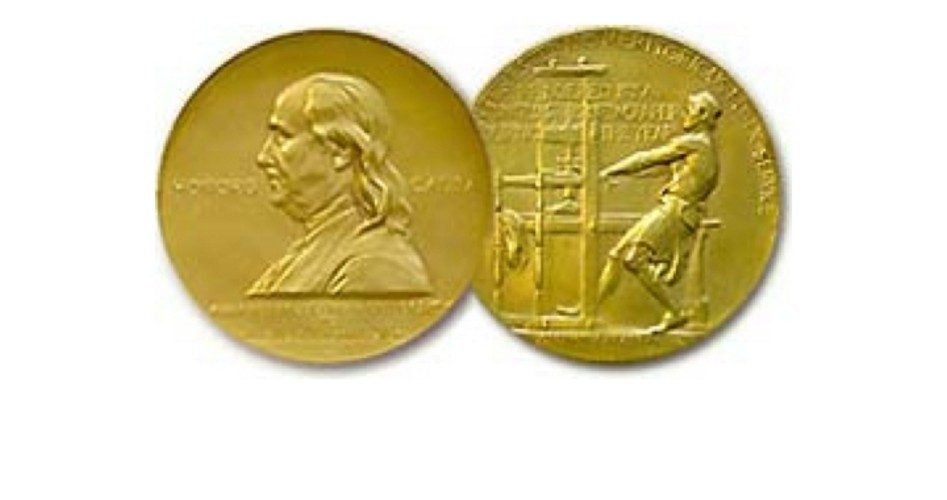
Washington Post Executive Editor Martin Baron anticipated that there would be a strong backlash when those opposed to Edward Snowden’s revelations learned of the Pulitzer Prize Committee’s decision to bestow its prestigious Public Service award on his paper. But he may not have estimated the extent and vitriol of that criticism.
Said Baron:
Disclosing the massive expansion of the NSA’s surveillance network absolutely was a public service. In constructing a surveillance system of breathtaking scope and intrusiveness, our government also sharply eroded individual privacy. All of this was done in secret, without public debate….
[Without Edward Snowden’s disclosures] we never would have known how far this country had shifted away from the rights of the individual in favor of state power. There would have been no public debate about the proper balance between privacy and national security….
None of this would have been possible without Snowden’s release of classified information. I understand that’s a source of controversy, but without his disclosures there would be no discussion of the shift from the rights of the individual to state power, no debate about the balance between privacy and national security.
First up to blast the decision was Rep. Peter King (R-N.Y.), a member of the House Homeland Security Committee, who exclaimed:
I think [giving the Pulitzer Prize to the Washington Post] is disgraceful. To be rewarding the dissemination of classified information that [jeopardizes] national security and enabling a traitor like Snowden is indefensible….
The information that he released has been extremely damaging. It enabled our enemies to know what we are capable of doing.
John Yoo, author of the infamous “torture memos” and his approval of ignoring the Fourth Amendment in NSA’s warrantless surveillance of Americans, weighed in on the matter:
I’m not surprised the Pulitzer committee gave the Washington Post a prize for pursuing a sensationalist story, even when the story is a disaster for its own country.
I don’t think we need automatically to read the prize as a vindication for Snowden’s crimes. Awarding a prize to a newspaper that covered a hurricane does not somehow vindicate the hurricane, [and] awarding a Pulitzer for a photo of a murder does not somehow vindicate the crime.
James Clapper, the director of national intelligence who perjured himself in testimony before a congressional committee last year, also pushed back:
Snowden claims that he’s won and that his mission is accomplished. If that is so, I call on him and his accomplices to … return … the remaining stolen documents that have not yet been exposed, to prevent even more damage to U.S. security.
Members of the House Intelligence Committee also inveighed against the award. Chairman Mike Rogers (R-Mich.) called Snowden’s revelations “real acts of betrayal,” while Rep. Devin Nunes (R- Calif.) said that Snowden was “obviously a traitor” for disclosing the NSA documents, adding, “What Snowden did cost us lives and billions of dollars.”
The most acidic of the criticisms of giving the award to the Washington Post (and The Guardian [U.K.]) came from the United Kingdom’s Liam Fox, a member of Parliament and former secretary of defense. In a strident editorial opinion in the Wall Street Journal, Fox vigorously defended the secrecy of the national surveillance state:
For our intelligence services to operate effectively … they need to be able to do things in secret, secrets whose public disclosure would be damaging to our national interests….
[This] has been imperiled over the past 10 months by the slow parading of intelligence secrets stolen by National Security Agency contractor Edward Snowden, working with Guardian journalist Glenn Greenwald and others.
Fox claimed that terrorist groups have benefited from Snowden’s disclosures and have shored up their own communication strategies to keep them away from the prying eyes of the NSA:
We have actually seen chatter among specific terrorist groups at home and abroad, discussing how to avoid what they now perceive to be vulnerable communications methods and, consequently, how to select communications that they perceive not to be exploitable.
No doubt these terrorist groups are extremely grateful to Messrs. Snowden and Greenwald and their accomplices for these useful tools in their war against our citizens, our armed forces and our way of life.
Fox wrote that Snowden’s efforts were designed deliberately to harm the safety and security of the United States and Britain, calling his acts treasonous:
His labors were designed to purposely damage American diplomacy and its relations with some of its closest allies, including the United Kingdom….
All this is in line with the virulent anti-Western, and particularly anti-American, views of Messrs. Snowden, Greenwald and their malicious associates….
Let us not imbue his cowardice with higher motives. Let us not confuse his egotism with public service. Let’s not call his treachery by lesser terms. Let us be clear about the intent and impact of his actions.
Let us be clear to the American people and their allies about the threats they now face from inside and out, terrorist and criminal. For once, let’s say what we mean. Let us call treason by its name.
In response, Michael Gartner, the former president of NBC News who spent 10 years on the Pulitzer Prize Committee, compared Snowden’s revelations to those of the Pentagon Papers published by the New York Times in 1971:
Wasn’t that precedent set with the Pentagon Papers? The nature of the theft might be different, but isn’t the journalism the same great stories produced from documents that were leaked by an employee of a private contractor?
For the record, the Pentagon Papers revealed that under the administration of President Lyndon Johnson, the federal government “systematically lied, not only to the public but also to Congress” about U.S. involvement in Vietnam. As a side note: Daniel Ellsberg, the employee who revealed the classified documents, was charged with conspiracy, espionage, and theft of government property, similar to the charges being levied against Snowden. However, those charges were dropped when Watergate investigators discovered that President Nixon had employed his “White House Plumbers” to discredit Ellsberg.
In his own defense, Snowden, now residing in Russia, which has granted him one year’s temporary asylum, said:
Today’s decision is a vindication for everyone who believes that the public has a role in government. We owe it to the efforts of the brave reporters and their colleagues who kept working in the face of extraordinary intimidation, including the forced destruction of journalistic materials, the inappropriate use of terrorism laws, and so many other means of pressure to get them to stop what the world now recognizes was work of vital public importance.
At the very least, Snowden’s revelations have reopened the crucial conversation about the proper role of government in protecting its citizens. He has advanced the debate between knowing and not knowing what the government is doing. It is instructive to note that nearly all the criticism of granting the Pulitzer Prize to the Washington Post and The Guardian newspapers has emanated from those with a vital personal interest in maintaining and strengthening the surveillance powers of that government, with precious little discussion of the citizens’ right to know what that government is doing.
Knowing is far less dangerous to personal freedom than not knowing.
A graduate of Cornell University and a former investment advisor, Bob is a regular contributor to The New American magazine and blogs frequently at www.LightFromTheRight.com, primarily on economics and politics. He can be reached at [email protected].



